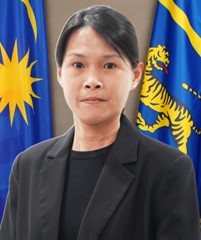Programme Educational Objectives (PEO)
PEO1- Professionalism
Graduates establish themselves as practicing professionals in Biomedical Engineering or related fields.
PEO2- Continuous Personal Development
Graduates engage in lifelong pursuit of knowledge and interdisciplinary learning appropriate for industrial and academic careers.
PEO3- Societal Engagement
Graduates contribute to sustainable development and the well-being of society.
Programme Objectives (PO)
- Apply knowledge of mathematics, natural science, engineering fundamentals and Biomedical Engineering specialization as specified in WK1 to WK4 respectively to the solution of complex engineering problems.
- Identify, formulate, conduct research literature and analyse complex Biomedical Engineering problems reaching substantiated conclusions using first principles of mathematics, natural sciences and engineering sciences (WK1 to WK4).
- Design solutions for complex Biomedical Engineering problems and design systems, components or processes that meet specified needs with appropriate consideration for public health and safety, cultural, societal, and environmental considerations (WK5).
- Conduct investigation of complex Biomedical Engineering problems using research-based knowledge (WK8) and research methods, including design of experiments, analysis and interpretation of data, and synthesis of information to provide valid conclusions.
- Create, select and apply appropriate techniques, resources, and modern engineering and IT tools, including prediction and modelling, to complex Biomedical Engineering problems, with an understanding of the limitations (WK6).
- Apply reasoning informed by contextual knowledge to assess societal, health, safety, legal and cultural issues and the consequent responsibilities relevant to professional engineering practice and solutions to complex Biomedical Engineering problems (WK7).
- Understand and evaluate the sustainability and impact of professional engineering work in the solutions of complex Biomedical Engineering problems in societal and environmental contexts. (WK7).
- Apply ethical principles and commit to professional ethics and responsibilities and norms of engineering practice (WK7).
- Function effectively as an individual, and as a member or leader in diverse teams and in multidisciplinary settings.
- Communicate effectively on complex Biomedical Engineering activities with the engineering community and with society at large, such as being able to comprehend and write effective reports and design documentation, make effective presentations, and give and receive clear instructions.
- Demonstrate knowledge and understanding of engineering management principles and economic decision-making and apply these to one’s own work, as a member and leader in a team, to manage projects in multidisciplinary environments.
- Recognise the need for, and have the preparation and ability to engage in independent and life-long learning in the broadest context of technological change.
.png)
